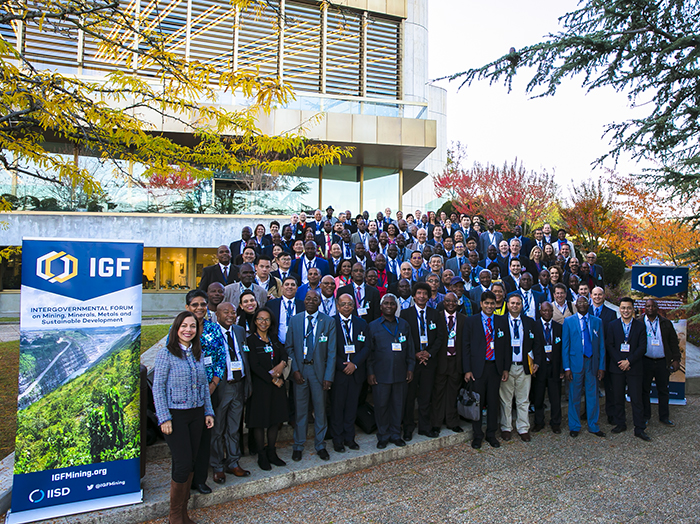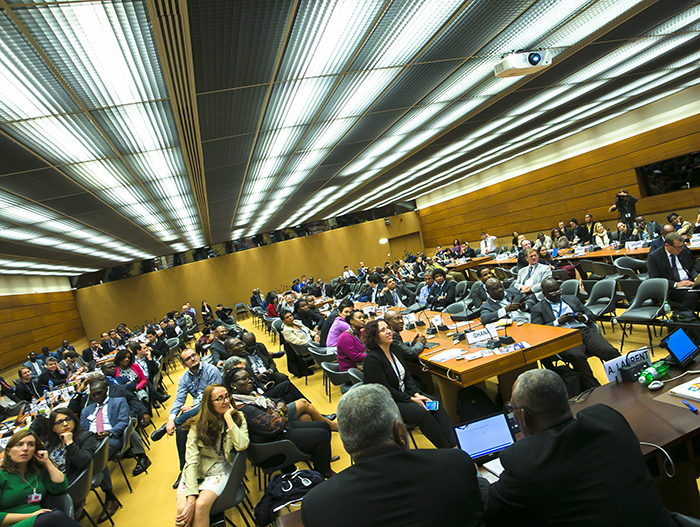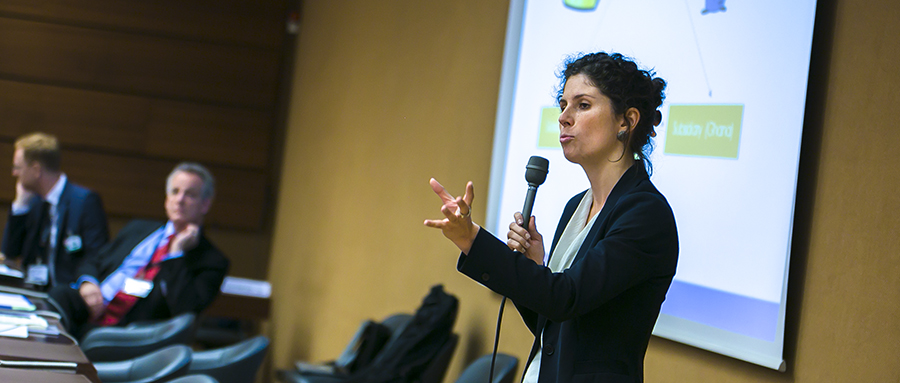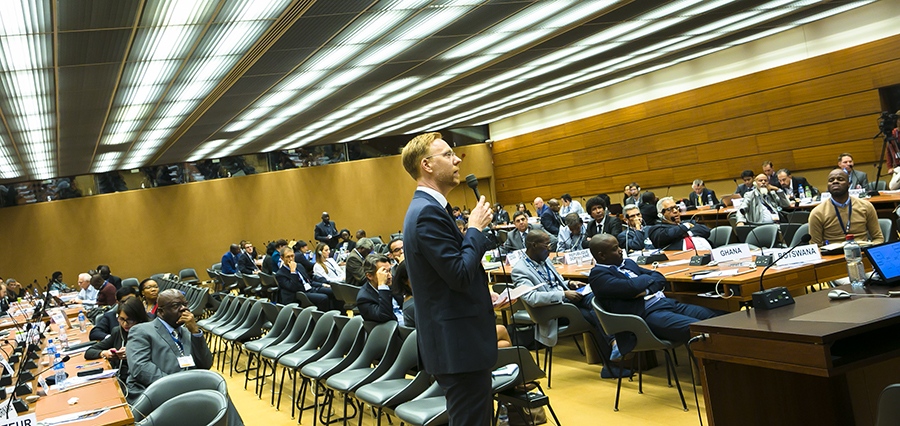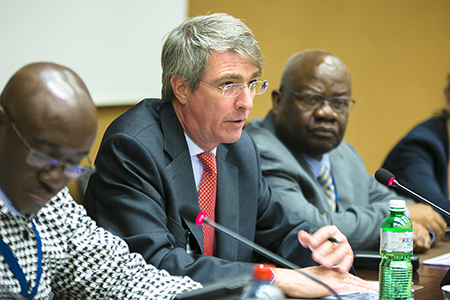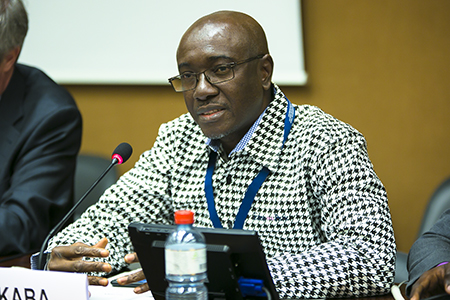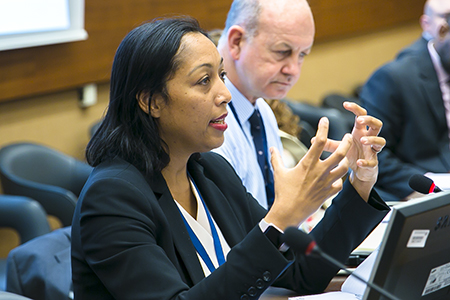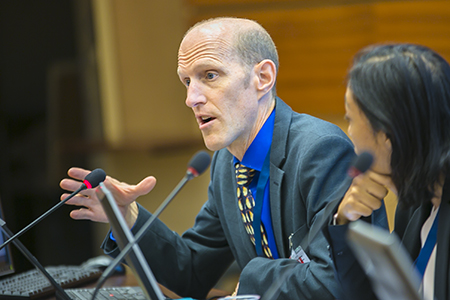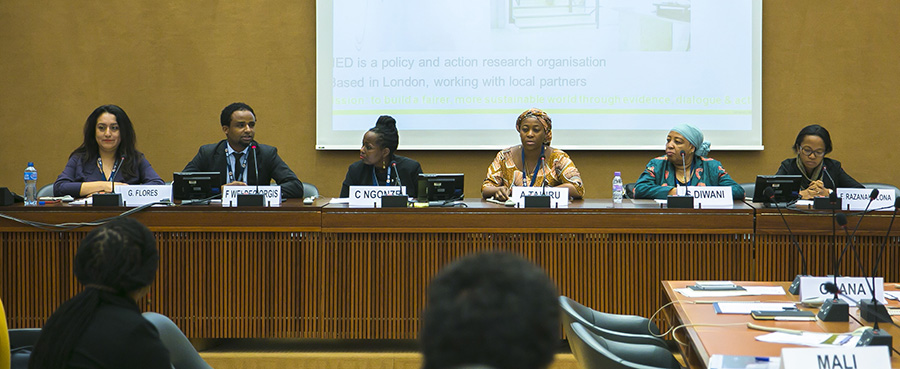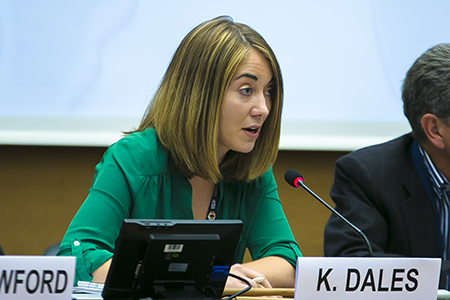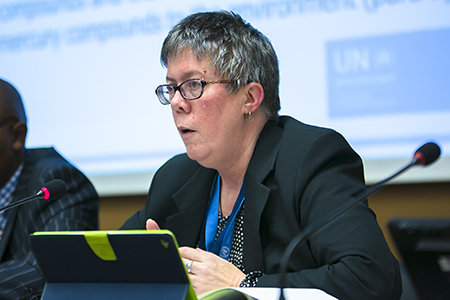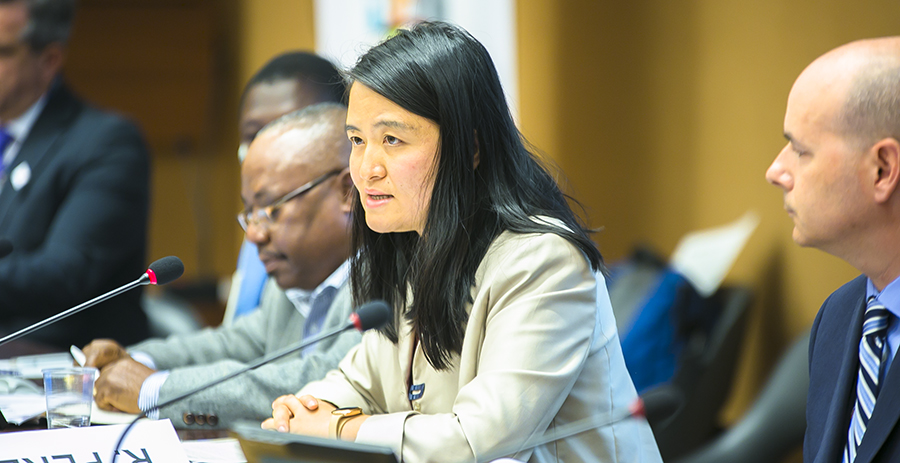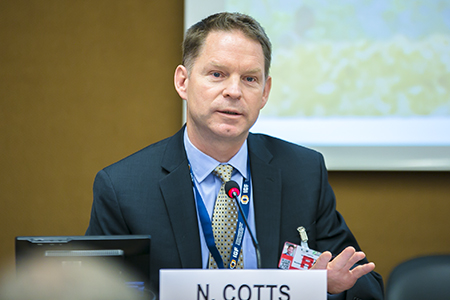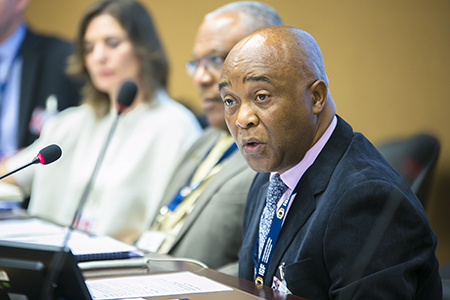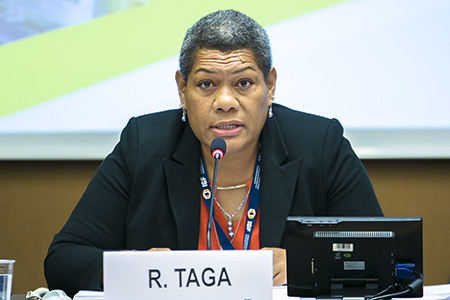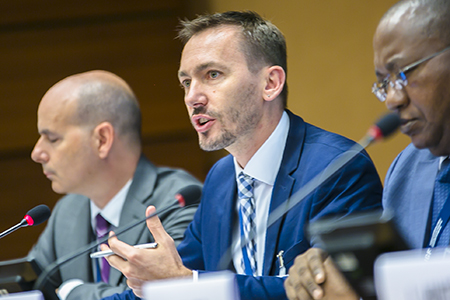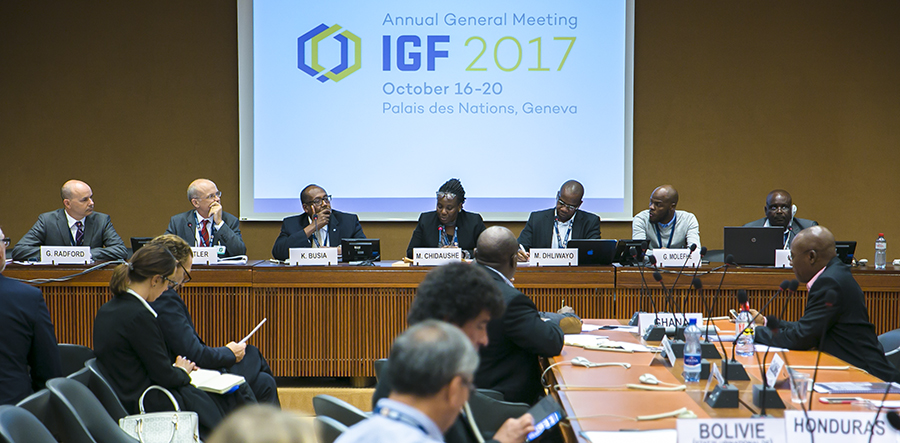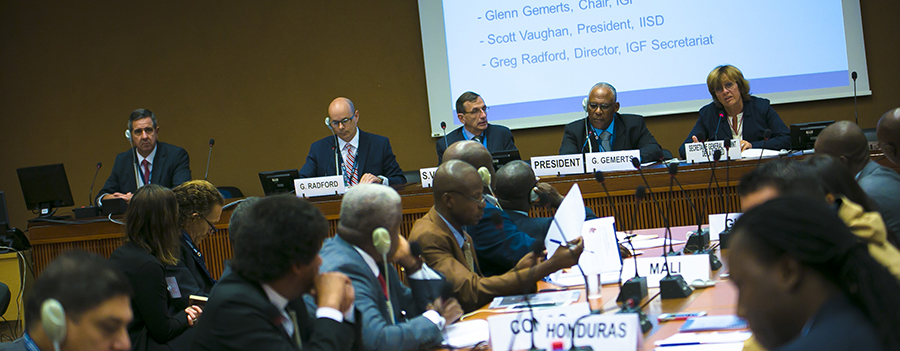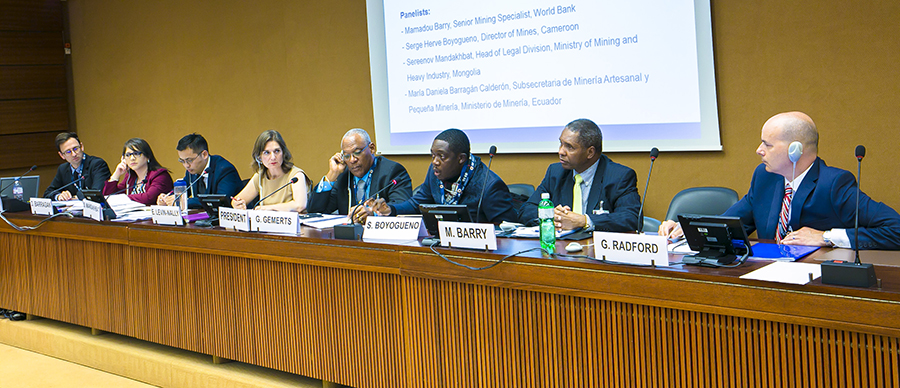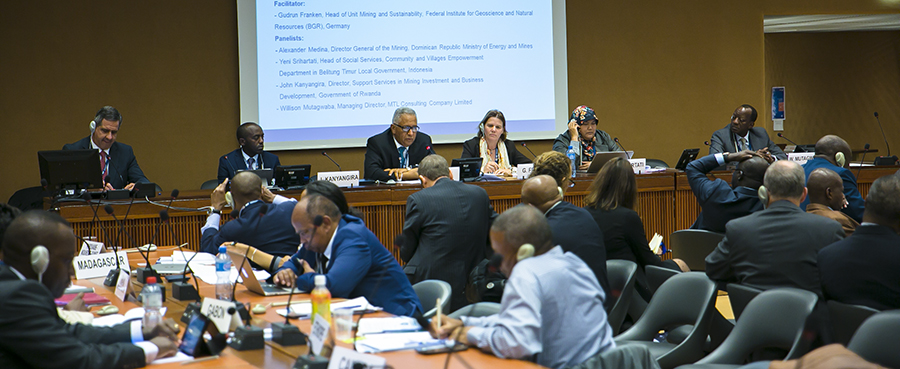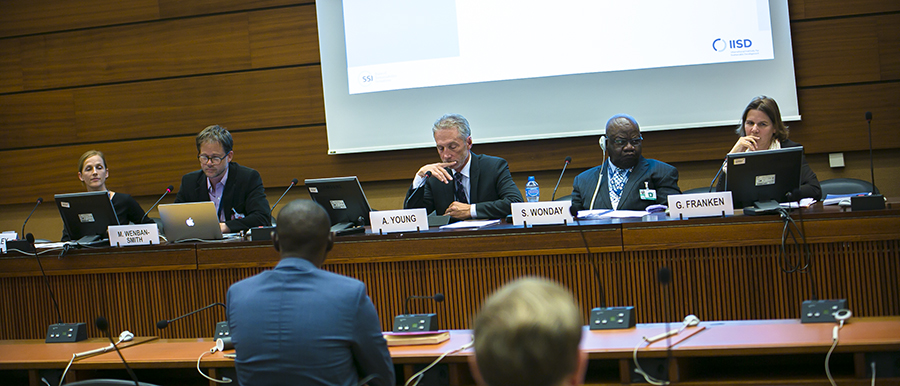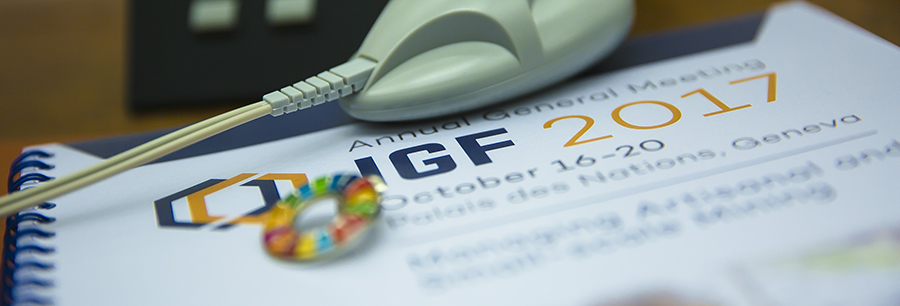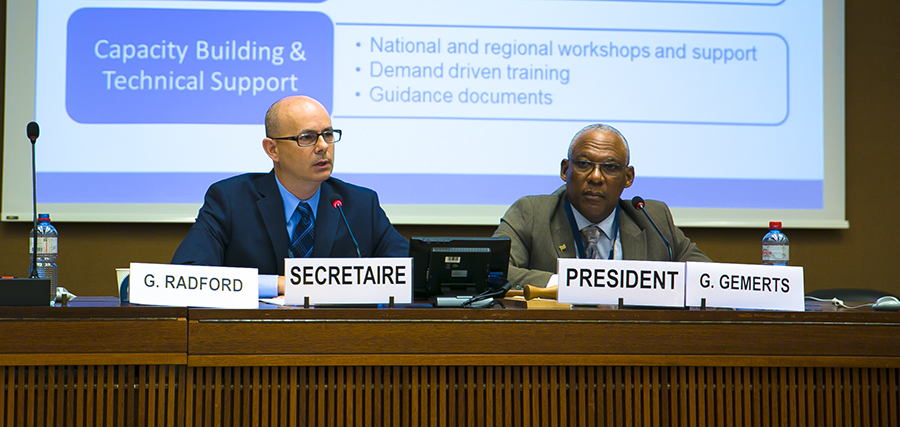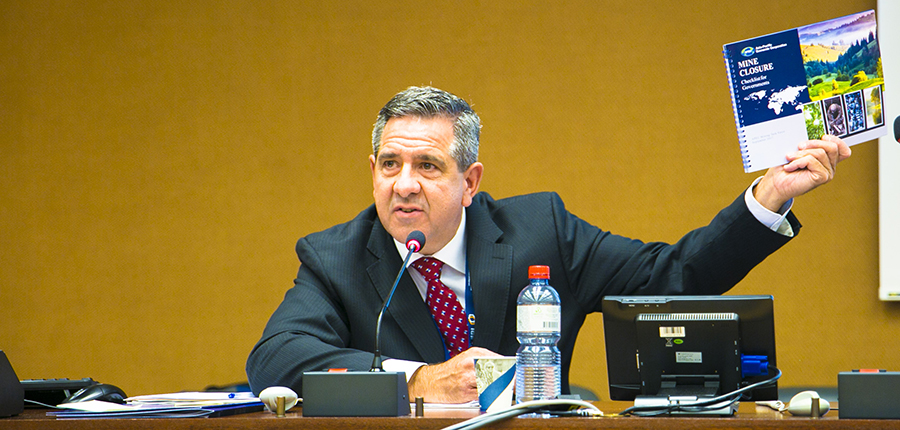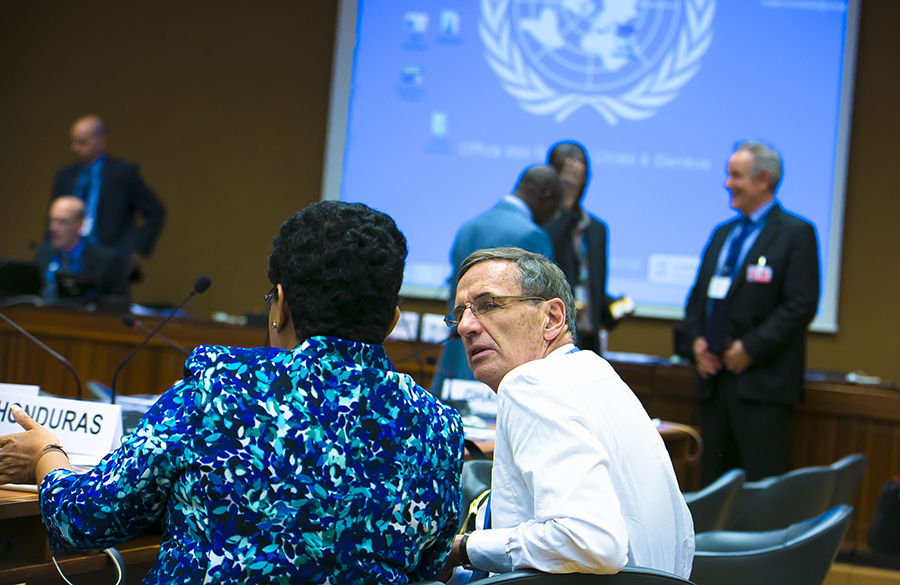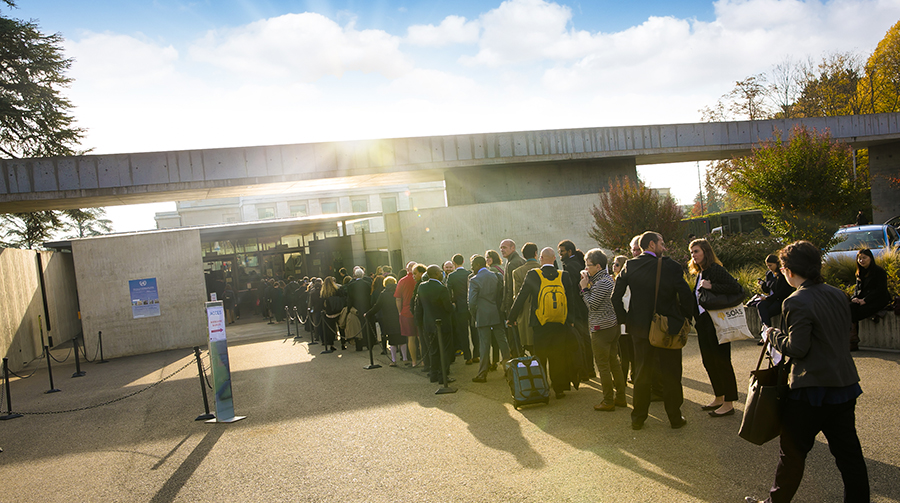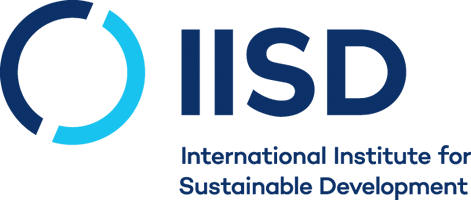13th AGM of the Intergovernmental Forum on Mining, Minerals, Metals and Sustainable Development - Managing Artisanal and Small-scale Mining
16-20 October 2017 | Palais des Nations, Geneva, Switzerland
Summary Highlights of the Meeting
Highlights for Friday, 20 October 2017
Howard Mann, IGF Secretariat, introduced the topic, noting that IGF members have identified this issue as one of their main concerns. With Dan Devlin, OECD, he outlined a joint IGF-OECD programme that aims to assist governments and build country capacity on the issue. Elfrieda Tamba, Commissioner General, Liberia Revenue Authority, gave the keynote address, recounting her country’s experience of increasing tax revenue by 500% through addressing revenue losses in the mining sector. She highlighted measures that have improved tax compliance in Liberia, including education and stakeholder engagement, and the training of government officials, which, she said, has improved inspection capacity. The workshop addressed a range of issues related to BEPS, including: how to detect instances of transfer mispricing; combating mispricing by strengthening mineral testing facilities in countries; and tax incentives that can help minimize profit shifting. Participants learned about the practice of debt financing that results in tax base erosion via interest deductions, and also discussed investment treaties and stabilization clauses. Participants raised questions about conceptual and practical difficulties related to addressing BEPS, considering the differences between illegal tax evasion practices and tax avoidance practices that remain within the bounds of legality. They discussed ways to address various technical and capacity challenges for governments, including through sharing of information to promote market and price transparency, and joint regional laboratory facilities for minerals testing. At the close of the workshop, Alexandra Readhead, BEPS Project Technical Advisor, IGF, encouraged countries to continue sharing their expertise and concerns, and Devlin highlighted the importance of conveying these messages to ministers and policy makers in order to bring about good financial governance in the mining sector. |
||
IISD Reporting Services, through its ENB+ Meeting Coverage, has provided daily web coverage, daily reports, and a summary report from AGM 2017. The summary report is now available in HTML and PDF. Photos by IISD/ENB+ | Sean Wu + Visit the web coverage for Friday, 20 October 2017 |
||
|
|
|
|
Highlights for Thursday, 19 October 2017
Sessions convened on local content policies, women and artisanal and small-scale gold mining (ASGM), good governance for biodiversity in mining, and financial benefit optimization. Participants discussed the value of financial modeling and the use of various tools and strategies, including the Local Procurement Reporting Mechanism presented by Engineers Without Borders Canada, and the Global Inventory of Biodiversity Offset Policies presented by the International Union for Conservation of Nature (IUCN). Sheila Logan, Minamata Convention Secretariat, briefed participants on the provisions of the Convention with regard to managing mercury use in ASGM. On women in ASM, speakers noted the disparity between the extent of women’s involvement and their low representation among mining license holders. They emphasized the need to improve women miners’ access to finance, geological data, lapidary training, and technology. At lunchtime, the Minerals and Energy for Development Alliance and IGF co-organized a side event on ‘Financing Women in Mining’, and the African Development Bank, with the data publisher Open Oil, launched a report, ‘Running the Numbers: How African Governments Model Extractive Projects.’ The UN Conference on Trade and Development (UNCTAD) led the final session, highlighting their research on assessing commodity-dependence, and the positive and negative interactions between extractive industries and the Sustainable Development Goals (SDGs). Yanchun Zhang, Chief, Commodity Policy Implementation and Outreach Section, Special Unit on Commodities, UNCTAD, commended the role of IGF in addressing ASM, noting that small-scale miners are often ignored and marginalized. Greg Radford, Director, IGF Secretariat, expressed appreciation for delegates’ engagement in peer learning during the week, and thanked all delegates for their participation, noting that the intergovernmental workshop on Monday had been the largest gathering of IGF member countries to date. Medina gaveled the meeting to a close at 6.16 pm. |
||
Photos by IISD/ENB+ | Sean Wu + Visit the web coverage for Thursday, 19 October 2017 |
||
|
|
|
|
|
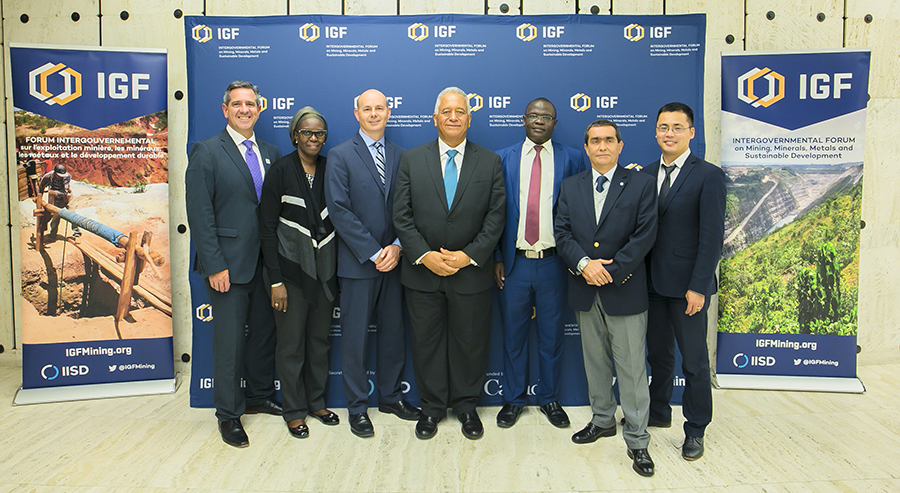 |
||
Highlights for Wednesday, 18 October 2017
Daniel Franks, UN Development Programme (UNDP), presented to delegates on the value of ‘development minerals,’ which include less-valued materials such as gypsum, sand and gravel, highlighting that their total value of production far exceeds that of precious metals and gemstones. He emphasized the potential of mining these minerals have in contributing to the Sustainable Development Goals (SDGs), by creating employment and bringing needed infrastructure to developing countries. Participants discussed how to address the issue of illicit financial flows from gold mining, and heard case studies from Mali, Mauritania and Mongolia on governments’ responses to gold rush situations. They also heard about strategies for environmental management and EIA in mining areas in Ghana and Guyana. At lunchtime, UN Environment launched a report, titled ‘Mine Tailings Storage: Safety is No Accident’, and the G7 CONNEX Support Unit presented on strengthening assistance for complex contract negotiations in the extractives sector. |
||
Photos by IISD/ENB+ | Sean Wu + Visit the web coverage for Wednesday, 18 October 2017 |
||
|
|
|
|
|
|
Highlights for Tuesday, 17 October 2017
Scott Vaughan, President, International Institute for Sustainable Development (IISD), noted the challenges of regulating artisanal and small-scale mining (ASM) and the 40 million workers in the sector, as compared with seven million workers in large-scale industrial mining. In the morning plenary, delegates discussed country experiences with formalizing ASM. They noted that there is no ‘simple dualism’ between legal and illegal forms of mining, and that governance frameworks should consider related issues such as land tenure, property rights, and human rights. At lunchtime, UN Environment’s International Resource Panel convened a stakeholder consultation on mineral resource governance for sustainable development, and the UN Development Programme (UNDP) launched a publication on ‘Integrating Human Rights into Environmental Governance of Mining.’ In the early afternoon, parallel sessions convened on formalization and management strategies for ASM, and on the Voluntary Principles on Security and Human Rights. Later in the day, parallel sessions convened on global environmental, social and governance trends, and on voluntary sustainability initiatives for the mining sector. Participants discussed approaches to formalization, including member countries’ special licensing processes and delineation of dedicated zones for ASM. Panelists highlighted the rise of investor and consumer concerns about labor conditions and environmental impacts associated with the mining sector. In the evening, delegates attended a reception at the conference venue, hosted by UN Environment. |
||
Photos by IISD/ENB+ | Sean Wu + Visit the web coverage for Tuesday, 17 October 2017 |
||
|
|
|
|
|
Highlights for Monday, 16 October 2017
Glenn Gemerts, IGF Executive Committee Chair, welcomed delegates on Monday morning, noting the growth of the IGF over the year to 61 members, and new member countries who had joined over the past year - Cambodia, Chad, Ecuador, Liberia, Somalia, and South Sudan. Greg Radford, Director, IGF Secretariat, reported on the Secretariat’s activities, including the organization of regional forums, training and capacity building events, which have supported some countries in drafting their own mining laws. The Secretariat invited delegates’ views on the mine closure checklist developed by Asia-Pacific Economic Cooperation (APEC) and mentioned its preparations to pilot implementation in Papua New Guinea. Delegates took part in a workshop session on regional priorities in the morning, and on trends and emerging issues regarding mining code and regulations in the afternoon. They attended a networking lunch at mid-day. In report-backs on regional priorities, countries shared their experiences of revising their respective mining codes, and noted various objectives including: optimizing income to the state; increasing transparency, stability and ease of doing business; regulating artisanal and small-scale mining (ASM); ensuring that local communities experience benefits from mining operations; and directing proceeds to building necessary infrastructure and undertaking projects for people’s wellbeing. Aaron Cosbey of the International Institute for Sustainable Development (IISD) and Jerry Ahadjie, IGF Executive Committee facilitated a consultation on the Local Content Policy Guidance document at the end of the day. |
||
Photos by IISD/ENB+ | Sean Wu + Visit the web coverage for Monday, 16 October 2017 |
||
|
|
|
|


